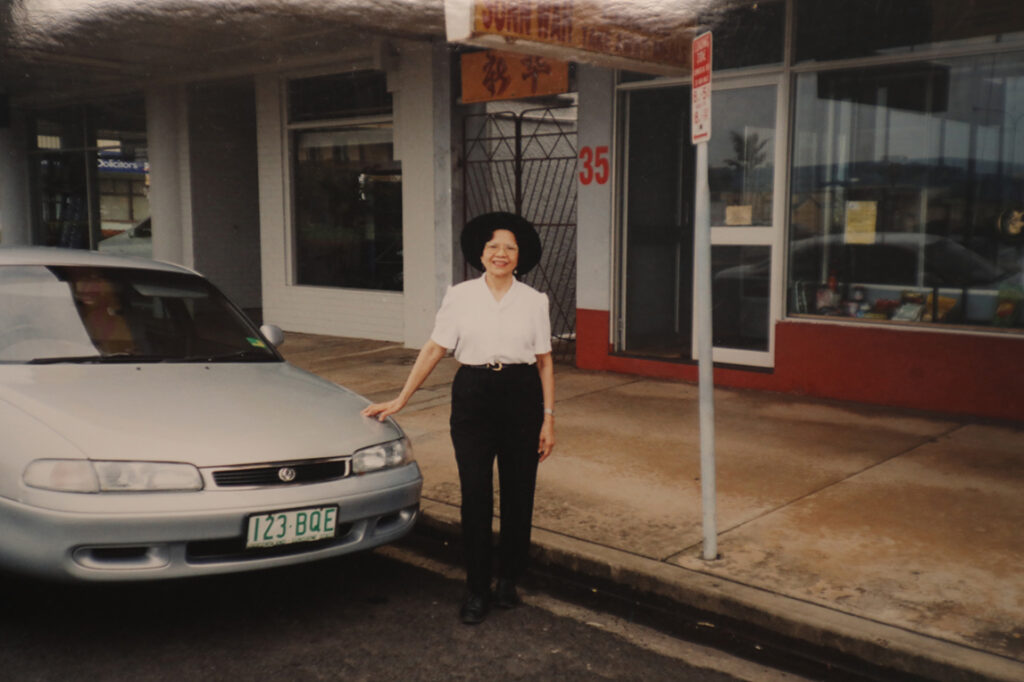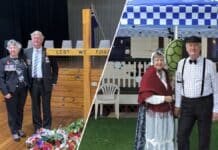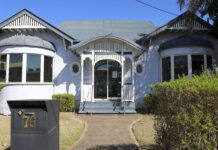
Sixty years ago, Harry Sunn and his wife Jenny came to Bundaberg with a bold idea to open the region’s first Chinese restaurant, the Wah Du.
It was 1962 and Harry was in his twenties and eager to share his Chinese culture and food with the local community who had never experienced it before.
Located at 37 Woongarra Street the Wah Du restaurant sat on the edge of what was then known as Chinatown, which Harry says ran all the way to Kennedy Bridge.
“They reckon in the old time that 35 Bourbong Street all the way to Kennedy Bridge was called Chinatown – there were a few Chinese people before I came here,” he said.
Harry has told his story as part of the annual celebration of Chinese New Year, which runs from Tuesday, 1 to Tuesday, 15 February.
Photos he has shared of his life will go on to be documented in the Bundaberg Regional Libraries Picture Bundaberg file, which aims to keep a long-lasting record of the region’s history.
Bundaberg’s Chinese history
The first Chinese workers to arrive in Queensland in the 1840s undertook contracted labour on properties.
By 1877 there were over 17,000 Chinese nationals working in Queensland on the gold fields.
A search of the records in the National Archives turns up many references to workers, farm labourers and gardeners here in Bundaberg from the 1880s onwards.
Harry is third generation Australian-Chinese.
He is the grandson of a Chinese gold miner who had come to Australia in 1890, raising his family in the Northern Territory.
Harry’s father was born in the Northern Territory, but the family moved back to China when his grandfather became ill.
“In China they called Australia (the) gold mountain, so my grandfather came here to pick gold,” Harry said.
“My father was born in Pine Creek (Northern Territory) but my grandfather was not well so the whole family moved back over the border from Hong Kong to Kwangchow, and I was born there.
“Then after the war my father said it was not safe, so we better come back to Australia and in 1950 we came to Brisbane.”
Harry and Jenny owned and operated Wah Du for 10 years, before moving to a bigger premises at 33 Bourbong Street.
“We moved and had everything including a snack bar,” Harry said.
“We stayed there until later on my mother in Hong Kong was not well and Jenny’s mother in Jakarta was not well, so we sold the business and each left to be with them.”

Family important in Chinese culture
Harry said eventually they returned to the Bundaberg Region with his mother, and in 1976 they opened Sunn Wah takeaway at 35 Bourbong Street, where the Eastern Dragon Chinese Restaurant is today.
The name of each of Harry’s Chinese restaurants translates to a special meaning.
He said Wah Du translated to “China City”, while Sunn Wah translated to “New China”.
Sunn Wah’s success didn’t come easily and Harry and Jenny would cook every meal, often working until midnight, seven days a week.
They only employed two other cooks to help as they got older.

The couple retired in 2003 after more than 40 years in business and Harry said he was then asked to share his culture and history with the community again.
He joined the committee of the PCYC Bundaberg Blazers Dragon Dancing.
“I introduced the PCYC and the young kids to lion and dragon dancing and told them the history of Chinese culture,” Harry said.
“We had Master Chan come up and teach us the dragon dance.”
Harry said he enjoyed teaching children how to paint dragons for Bundaberg’s Chinese New Year celebration, the big event honouring the Bundaberg Region’s sister city relationship with Nanning, China.
Now at 87, after six decades in Bundaberg Harry remains independent and still enjoys his time cooking in the kitchen.
With Chinese New Year underway, Council is calling on other community members with Chinese heritage to share their history through Picture Bundaberg.
If you have photos to share, contact library@bundaberg.qld.gov.au









My memories extend back 50 years but we always went to Wah Du because it was the best
We have known Harry and Jenny for many years they are an amazing couple.
A true gentleman. My family enjoyed Chinese food from their takeaways. Harry cared and loved his wife throughout their life. Great we are acknowledging their connection to Bundaberg.
I recall the Wah Du. Harry may recall “George, the Postie.” Chinese labourers are recorded in the Gayndah and Mundubbera areas in the early 1850 period. Tan Wat was an absconder just to cite one. An Aboriginal is recorded as having found a lost Chinaman in the bush on the coastal side of Gin Gin Run before Gin Gin was recommended for acceptance and was returned to Mr. William Forster requesting that saving this man from certain death, the Aboriginal wanted to be left alone. That is the closest record i have found to near Bundaberg, some 10 years earlier.
in the WW1 book of Aliens for Childers, there are a dozen or so Chinese recorded as Aliens. some seem to go between Childers and Bundaberg. Harry would be helpful in unravelling these names.
in the Bundaberg Court Debentures, there is a case about carrot theft. the Chinese gardeners gave evidence, their names are recorded in Chinese characters, but most interesting is their oath was given on the “Blowing out a Match” symbol. Harry would understand those symbols.
My family and I moved to Isis Central Mill in 1962 and later in that year dad discovered the Wah Du, which we loved and went there every week as dad was trying to work his way through the menu. Even though he enjoyed a meal one week he would not order the same meal the next week as he was determined to work his way through that menu. The Wah Du was the best Chinese meals ever. Thanks.